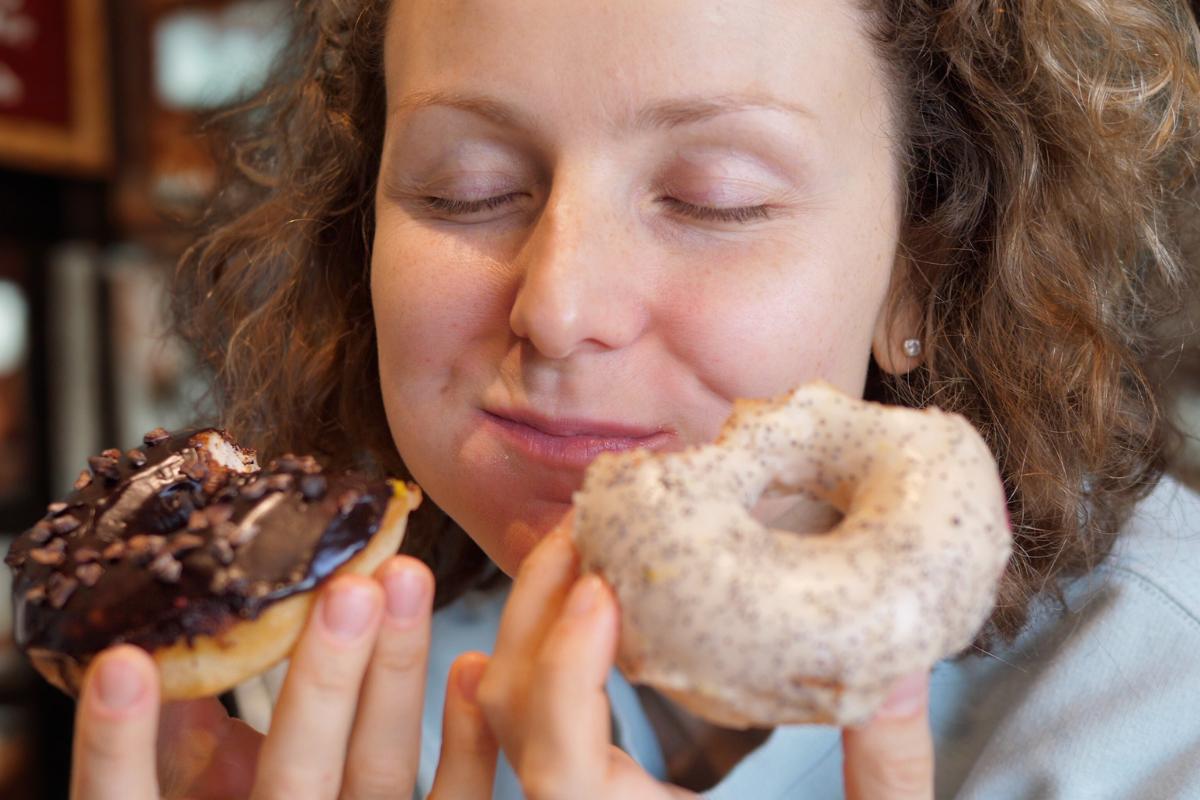What Is Binge Eating Disorder? A No-Nonsense Guide
We all have days when we eat more than we planned. Maybe it was an extra slice of cake at a birthday party, or a few too many biscuits with your afternoon tea. Overeating from time to time is completely normal. However, when eating large amounts of food in a short period becomes a regular, uncontrollable habit, it might be a sign of something more serious: Binge Eating Disorder (BED).
If you’re worried about your eating habits or those of someone you care about, you’ve come to the right place. This guide is here to explain what binge eating disorder is, what it feels like, and how to find help. We’ll break down the facts without judgment, offering a clear and supportive look at this common but often misunderstood condition. Think of this as a friendly chat to help you understand what’s going on and what your next steps could be.

So, What Exactly Is Binge Eating Disorder?
Binge eating disorder is the most common eating disorder in the UK. It’s a serious mental health condition where a person frequently eats a lot of food in a short space of time. This is called a binge episode. A key part of BED is the feeling of being completely out of control during these episodes.
Unlike other eating disorders, people with BED don’t try to “undo” the binge by being sick or using laxatives. But afterwards, they often feel intense shame, guilt, and distress about their eating. It’s not about greed or a lack of willpower; it’s a complex condition with deep emotional roots.
The official diagnosis for BED, according to mental health experts, includes a few key criteria:
- Recurring episodes of binge eating. An episode involves eating an amount of food that is definitely larger than what most people would eat in a similar period, under similar circumstances.
- A sense of a lack of control over eating during the episode. You might feel like you can’t stop eating or control what or how much you are eating.
- Binge eating episodes are associated with three (or more) of the following:
- Eating much more rapidly than normal.
- Eating until feeling uncomfortably full.
- Eating large amounts of food when not feeling physically hungry.
- Eating alone because of feeling embarrassed by how much one is eating.
- Feeling disgusted with oneself, depressed, or very guilty afterward.
- Marked distress regarding binge eating is present.
- The binge eating occurs, on average, at least once a week for three months.
- The binge eating is not associated with the recurrent use of inappropriate compensatory behaviours (like purging) and does not occur exclusively during the course of anorexia nervosa or bulimia nervosa.
This might sound very clinical, but it paints a picture of a distressing cycle. It’s this cycle of compulsive eating followed by emotional pain that defines BED.
Binge Eating vs. Emotional Eating: What’s the Difference?
You’ve probably heard the term “emotional eating,” and it’s easy to confuse it with binge eating disorder. While they are related, they aren’t the same thing.
Emotional eating is when you use food to soothe or suppress emotions. Had a bad day at work? A tub of ice cream might feel like the perfect solution. Feeling bored or lonely? A packet of crisps can provide a temporary distraction. Most of us do this from time to time. Food can be comforting, and that’s okay. Emotional eating is usually a conscious choice, even if it’s a bit impulsive. You might regret it later, but you don’t feel a total loss of control.
Binge eating, on the other hand, feels compulsive and out of control. It’s not just about finding comfort. During a binge, you might eat past the point of fullness, often quickly and secretively. The driving force isn’t just an emotion, but a powerful, overwhelming urge that feels impossible to resist. The feelings of shame and self-loathing that follow are typically much more intense than the mild regret you might feel after emotionally eating.
Think of it this way: emotional eating is using food as a crutch. Binge eating is feeling like you’ve been pushed down a hill and can’t stop until you crash at the bottom.
What Causes Binge Eating Disorder?
There’s no single cause of binge eating disorder. Like most mental health conditions, it’s usually a mix of different factors. Let’s look at some of the common threads.
Psychological Factors
Many people with binge eating disorder also struggle with other mental health issues, like:
- Depression and Anxiety: The feelings of sadness, worry, and emptiness associated with these conditions can trigger the urge to binge. Food can become a temporary escape from emotional pain.
- Low Self-Esteem and Body Image Issues: Feeling bad about yourself or your body can create a vicious cycle. You feel down about your appearance, so you binge to cope. The binge leads to more negative feelings about yourself, which then fuels the next binge.
- Perfectionism and All-or-Nothing Thinking: Perfectionists often have very rigid rules, including about food. If they break a rule (e.g., “I will not eat sugar“), they might feel like a total failure. This “all-or-nothing” mindset can lead to a binge. The thought process is often, “Well, I’ve already messed up, so I might as well go all out.”
Biological and Genetic Factors
Your genes might play a role, too. Binge eating disorder often runs in families, suggesting a genetic link. There might also be differences in brain chemistry. Some research suggests that the brain’s reward centres might be wired differently in people with BED, making them more susceptible to the rewarding feelings food can provide. Hormones that control hunger and fullness may also be out of balance.
Social and Cultural Factors
We live in a world that is obsessed with dieting and body weight. This pressure can be a huge trigger for binge eating disorder.
- History of Dieting: Many people with BED have a long history of dieting. Restricting food can lead to intense cravings and preoccupation with food. When you finally “give in,” it can feel like the floodgates have opened, leading to a binge. In fact, dieting is one of the biggest risk factors for developing an eating disorder.
- Weight Stigma and Bullying: Being teased or criticised about your weight, especially during childhood, can have a lasting impact. These painful experiences can contribute to low self-esteem and emotional eating patterns that can develop into BED.
Understanding these causes is a step towards self-compassion. It helps to see that BED isn’t a choice, but a complex response to a mix of internal and external pressures.
How to Find Binge Eating Disorder Help
Recognising you might have a problem is a huge and brave first step. The next is reaching out for help. Binge eating disorder is treatable, and with the right support, you can break free from the cycle of compulsive eating and find a healthier relationship with food.
Here’s where you can turn for eating disorder help:
Talk to Your GP
A great starting point is your GP. They can listen to your concerns, make an initial assessment, and refer you to specialist services. It can be scary to have this conversation, but remember that GPs are there to help, not to judge. They talk about sensitive topics every day, so they will not be phased by discussing potential binge eating disorder. It can be helpful to write down your symptoms and feelings beforehand so you don’t forget anything.
Therapy and Counselling
Therapy is the cornerstone of treatment for binge eating disorder. Several types have been proven to be effective:
- Cognitive Behavioural Therapy (CBT): This is often considered the gold standard for BED. CBT helps you identify the negative thoughts and feelings that trigger binges and replace them with healthier coping strategies. A specific form, CBT-E (Enhanced CBT), is tailored for eating disorders.
- Interpersonal Therapy (IPT): This therapy focuses on your relationships with others. It explores how your interactions and relationship problems might be contributing to your eating behaviours. The goal is to improve your interpersonal skills and find better ways to handle relationship stress.
- Dialectical Behaviour Therapy (DBT): DBT is particularly helpful if you struggle with intense emotions. It teaches skills in four key areas: mindfulness, emotional regulation, distress tolerance, and interpersonal effectiveness. It helps you manage painful feelings without turning to food.
Support Groups
Connecting with others who understand what you’re going through can be incredibly powerful. Support groups provide a safe, non-judgmental space to share your experiences and learn from others. Organisations like Beat, the UK’s eating disorder charity, run online and in-person support groups. Hearing others’ stories can make you feel less alone and more hopeful about recovery.
Nutritional Counselling
Working with a dietitian who specialises in eating disorders, particularly binge eating disorder, can also be very helpful. They can help you move away from restrictive dieting and develop a balanced, flexible approach to eating. They won’t just give you a meal plan; they’ll help you relearn your body’s hunger and fullness cues and build a peaceful relationship with food.
Your Path to Recovery
Overcoming binge eating disorder is a journey, not a destination. There will be good days and bad days, but every step forward is a victory. Recovery is about more than just stopping the binges; it’s about healing your relationship with food, your body, and yourself. It’s about finding new ways to cope with life’s challenges and learning to treat yourself with kindness and compassion.
If you’re reading this and it all sounds painfully familiar, please know that you are not alone, and help is available. You don’t have to carry this burden by yourself. Reaching out is a sign of strength, and it’s the first step towards a better future.
Do you think you could have binge eating disorder? Is it something you could talk to your doctor about?






